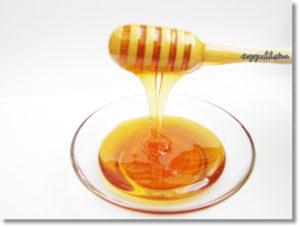
Honey is a sweet, viscous food substance produced by bees and some related insects. While being used as a tasty sweetner and condiment for many culinary reasons, honey has other amazing benefits.
In myths and folk medicine, honey has been used both orally and topically to treat various ailments including gastric disturbances, ulcers, skin wounds, and skin burns by ancient Greeks and Egyptians, and in Ayurveda and traditional Chinese medicine.
In this recent article from Wake Up World, they talk about 5 amazing facts regarding the healing benefits of honey:
“5 Amazing Healing Honey Facts
November 10th, 2017
By Sayer Ji
Contributing writer for Wake Up World
Honey, unlike almost everything else we consume in our diet, was intended solely to be a form of nourishment – albeit, for the bees. Only milk, to my knowledge, shares this singular biological imperative. But honey is far more than a source of sweetness and quick energy within the human diet. Honey has profound medicinal applications, some of which are as follows:
Honey feeds the good bacteria:
it is a little-known fact that bees have a diverse population of beneficial lactic acid bacteria (LAB) in their honey crop, the bulge between the esophagus and the gizzard of the bee. In fact, according to newly published research in PLoS, “studies of LAB in all extant honeybee species plus related apid bees reveal one of the largest collections of novel species from the genera Lactobacillus and Bifidobacterium ever discovered within a single insect and suggest a long (>80 mya) history of association.”[i] Indeed, raw honey feeds good bacteria. It has been experimentally demonstrated in in vitro (petri dish) conditions to increase the number of Lactobacillus acidophilus and Lactobacillus plantarum counts 10-100 fold compared with sucrose.[ii]
Honey fights the “bad” bacteria, i.e. MRSA:
Reports of honey eradicating MRSA infection have been reported in the medical literature for well over a decade.[iii] MRSA, an acronym for methicillin-resistant Staphylococcus aureus, produces a biofilm which makes it especially resistant to conventional antimicrobial agents. Honey has been shown to be effective at killing biofilm-associated MRSA isolates from patients suffering from chronic rhinosinusitus.[iv] This has also been demonstrated in human research, with a 70% effective rate in destroying MRSA in chronic venous ulcers.[v] Moreover, manuka also synergizes with conventional antibiotics making MRSA bacterial isolates more susceptible to their antibacterial action.[vi]
Related reading: Manuka Oil Conquers Deadly MRSA Bacteria Where Conventional Medicine Fails“
Some other medicinal uses of honey, though not studied greatly, range from healing wounds and burns, being used as an antibiotic, and to help control coughing.
But whether you use honey on our biscuits or as a healing agent, not all honey is created equal. You would obviously not want to use the mass produced honey sold in supermarkets, but use the honey that is as close to nature as possible. You can find these easily through simple searches online and in your local health food store. While common sense it is always it never hurts to have a reminder to always look for the least preserved and produced products.
To dig in a little deeper into the healing benefits of hone, finish reading the article over on the post at Wake Up World.
Photo By SeyyahHatun